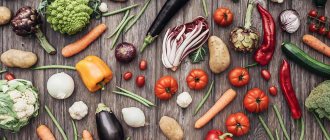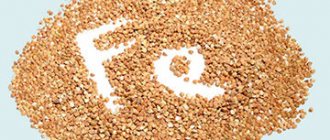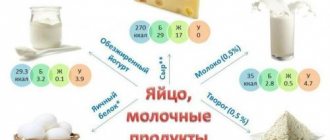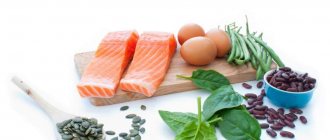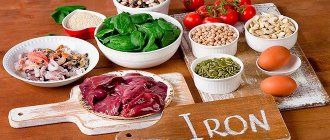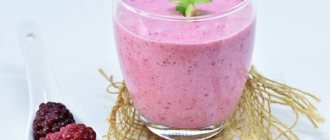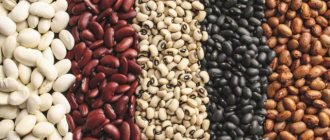People who prefer a vegetarian diet decide to completely abstain from meat, fish, and other animal products, instead consuming large quantities of fruits, vegetables and legumes. Some consider vegetarianism to be something strange and believe that a person should eat meat, otherwise he will face health problems, while others insist that giving up meat has a positive effect on the general condition of the body - whose side is the truth? What types of vegetarianism exist, what motivates people to adhere to such a diet and how giving up food of animal origin affects the body, read the article on estet-portal.com.
Vegetarianism is a refusal to consume meat and/or milk and eggs with increased consumption of food of plant origin (vegetables, fruits, berries, nuts, grains, etc.) as sources of energy and nutrients. Vegetarianism, as one of the varieties of diet, has been known for a long time. According to D. Wasserman (2001), approximately 2% of adults in the world are vegetarians. In India, between 20% and 40% of the total population is vegetarian.
Before the term “vegetarianism” appeared, a diet based on the consumption of exclusively plant foods was called “Indian” or “Pythagorean”.
Over the years, there has been ongoing debate regarding the positive and negative effects of a diet devoid of animal nutrients, especially in childhood.
What is a vegetarian diet?
A vegetarian diet involves abstaining from eating meat, fish and poultry.
People often adopt a vegetarian diet for religious or personal reasons, or to address an ethical issue such as animal rights.
Others choose to become vegetarians for environmental reasons because animal production increases greenhouse gas emissions, contributes to climate change, and requires large amounts of water, energy, and natural resources (2, 3).
There are several forms of vegetarianism, each with its own limitations.
The most common types include:
- Ovolacto-vegetarianism : Excludes meat, fish and poultry, but allows eggs and dairy products.
- Lactovegetarianism : Excludes meat, fish, poultry and eggs, but allows dairy products.
- Ovo-vegetarianism : Excludes meat, fish, poultry and dairy products, but allows eggs.
- Pescetarianism : Excludes meat and poultry, but allows the consumption of fish and sometimes eggs and dairy products.
- Veganism : Excludes meat, fish, poultry, eggs and dairy products, as well as other animal products such as honey.
- Flexitarianism : Flexitarianism is a predominantly plant-based diet that allows the consumption of meat, fish or poultry.
Summary:
Most people who follow a vegetarian diet do not eat meat, fish or poultry. Other options do or do not allow you to eat eggs, dairy, and other animal products.
Vegetarians, vegans and science
There is still a fierce debate in our culture between vegetarians and meat eaters. To the three questions of the 18th century, two more were added: how vegetarianism affects the economy and how it affects the environment. Modern supporters of refusing to eat meat say that such a diet should no longer be considered just as a whim of an individual, but as the food future of humanity. And the sooner it comes, the better.
But let's deal with everything in order. How has science studied the effects of a diet that excludes animal foods on the human body?
Again, a short excursion into theory: vegetarianism has different forms. Classically there are four of them. These are ovolacto-vegetarianism (no meat), ovo-vegetarianism (no meat and milk), lacto-vegetarianism (no meat and eggs) and veganism (no all animal products). Scientific studies on the effects of diet on the human body indicate what type of vegetarianism the participants adhere to. You need to pay attention to this in order to draw correct conclusions.
Back in 1962, scientists studied how vitamin B12 is metabolized in people following a strict vegan diet. Subsequently, they assessed many factors and measured a large number of important characteristics: the level of calcium, protein, folic acid in the body, genomic instability, etc. What did they end up with? Vegans actually have a deficiency of all of the above substances in their bodies. On the other hand, those who eat a traditional diet are slightly more likely to experience oxidative DNA damage. However, other aspects of genomic instability are not affected by meat consumption.
The conclusion from all such studies is simple and obvious: vegetarians have lower than normal levels of those substances in their bodies that usually come with food of animal origin. Everything is logical. Man, as a biological species, has evolved as an omnivore, and is therefore well adapted to this type of nutrition. However, with natural (by increasing plant foods high in protein in the diet) and artificial replacement of necessary substances, a vegetarian will not experience health problems. The question is how responsibly he will approach the preparation of his diet, taking into account all the dietary supplements. It should be noted that artificial replacement of substances that we usually consume with food requires a thoughtful approach, since the dosage must be accurately calculated. To ensure that your choice of medications does not cause harm, you should, of course, consult with a medical specialist before purchasing them.
Benefit for health
Science has proven that vegetarian diets are good for your health.
In fact, research shows that vegetarians tend to have better diet quality than meat eaters and higher intakes of important nutrients such as fiber, vitamin C, vitamin E, and magnesium (4, 5).
A vegetarian diet may provide the following benefits.
May help you lose weight
Switching to a vegetarian diet can be an effective strategy if you want to lose weight.
In fact, one review of 12 studies noted that vegetarians, on average, lost more than 2 kg of excess body weight over 18 weeks, compared with non-vegetarians (6).
Similarly, a six-month study of 74 people with type 2 diabetes found that vegetarian diets were nearly twice as effective at reducing body weight as low-calorie diets (7).
Additionally, a study that looked at nearly 61,000 adults found that vegetarians tend to have a lower body mass index (BMI) than non-vegetarians. BMI is a measurement of body fat based on height and weight (8).
May reduce the risk of cancer
Some studies suggest that a vegetarian diet may be associated with a lower risk of developing certain types of cancer, such as breast, colon, rectal, and stomach cancer (9, 10, 11).
However, current research is limited to studies that cannot prove cause and effect. Keep in mind that some studies have reported conflicting results (12, 13).
Therefore, more research is needed to understand how vegetarianism may affect cancer risk.
May stabilize blood sugar levels
Several studies show that vegetarian diets can help maintain healthy blood sugar levels.
For example, one review of six studies linked vegetarianism to improved blood sugar control in people with type 2 diabetes (14).
Vegetarian diets may also prevent the development of diabetes by stabilizing blood sugar levels in the long term.
In one study of 2,918 people, switching from a non-vegetarian to a vegetarian diet was associated with a 53% reduction in the risk of developing diabetes over an average of five years (15).
Promotes Heart Health
Vegetarian diets reduce risk factors for heart disease to help keep your heart healthy and strong.
One study of 76 people found that vegetarian diets were associated with lower levels of triglycerides, total cholesterol, and “bad” LDL cholesterol, which are risk factors for heart disease when elevated (16).
Likewise, another recent study of 118 people found that a low-calorie vegetarian diet was more effective in reducing levels of “bad” LDL cholesterol than a Mediterranean diet (17).
Other studies suggest that vegetarianism may be associated with lower blood pressure levels. High blood pressure is another key risk factor for heart disease (18, 19).
Summary:
Vegetarians tend to consume more nutrients than non-vegetarians. Vegetarianism is also associated with reduced excess body weight, reduced risk of cancer, normalized blood sugar levels and improved heart health.
Therapeutic vegetarian diets
In neurology, the principles of vegetarianism have gained some popularity when used for therapeutic and/or preventive purposes. LA Bazzano (2002) indicates a reduction in mortality from stroke (by 42%) among people who consume plenty of fruits and vegetables on a regular basis. MF McCarty (2001) believes that complete vegetarianism (veganism) reduces the risk of developing parkinsonism. There is evidence that vegetarian diets provide a state of “healthy mood”, that is, they have a beneficial effect on the emotions of individuals.
Vegetarianism and limited meat eating are considered indicated for multiple sclerosis (for preventive and therapeutic purposes).
MC Carrascosa Romero et al. (2003) described the positive effect of a vegetarian diet for glutaric aciduria (acidemia) type I. The authors call the diet used a “semi-vegetarian” diet and emphasize the advisability of its use in combination with vitamin supplementation at the pre-symptomatic stage of glutaric acidemia type I.
A vegetarian diet has been successfully used for Wilson-Konovalov disease (hepatocerebral dystrophy). Since the copper (Cu) supplied to the body by vegetarian diets is less biologically available (approximately 25%) than when using conventional (mixed) diets, in case of the described pathology, it is advisable to consume food of non-animal origin.
K. A. Azad et al. (2000), K. Kaartinen et al. (2000) and MS Donaldson et al. (2001) presented their experience of using vegetarian diets in the treatment of fibromyalgia syndrome.
G. Hodgkin and S. Maloney (2003) described a vegetarian approach to the construction of diets for neurometabolic pathology (maple syrup urine disease, galactosemia, fructosemia and phenylketonuria). G. Hodgkin (2005) mentions vegetarian versions of ketogenic diets for use in the treatment of drug-resistant forms of epilepsy.
There are other diseases of the nervous system for which switching to vegetarianism has a therapeutic effect.
Potential Disadvantages
A well-planned vegetarian diet can be healthy and nutritious.
However, it may also increase the risk of certain nutrient deficiencies.
Meat, poultry, and fish contain high amounts of protein and omega-3 fatty acids, as well as micronutrients such as zinc, selenium, iron, and vitamin B12 (20).
Other animal foods, such as dairy and eggs, also contain high amounts of calcium, vitamin D, and B vitamins (21, 22).
When avoiding meat or other animal products, it is important to ensure that you are getting these essential nutrients from other sources.
Research shows that vegetarians are at higher risk of deficiencies in protein, calcium, iron, iodine, and vitamin B12 (23, 24, 25, 26).
Deficiencies in these key micronutrients can lead to symptoms such as fatigue, weakness, anemia, bone loss, and thyroid problems (27, 28, 29, 30).
Incorporating a variety of fruits, vegetables, whole grains, protein-rich foods, and fortified foods into your diet is an easy way to get on the path to healthy eating.
Taking multivitamins and supplements is another option to quickly increase your nutrient intake and offset potential deficiencies.
Summary:
Avoiding meat and animal products may increase the risk of certain nutrient deficiencies. A well-balanced diet (perhaps along with taking a supplement) can help prevent deficiency.
What foods should you eat?
A vegetarian diet should include a wide variety of fruits, vegetables, grains, healthy fats and proteins.
To replace the protein provided by meat in your diet, include a variety of protein-rich plant foods such as nuts, seeds, legumes, tempeh, tofu and seitan.
If you follow an ovolacto-vegetarian diet, eggs and dairy products can also increase your protein intake.
Eating nutrient-dense whole foods such as fruits, vegetables and whole grains will provide your body with a number of important vitamins and minerals, making up for any deficiencies in important nutrients in your diet.
Here are some healthy foods to eat on a vegetarian diet:
- Fruits : Apples, bananas, berries, oranges, melons, pears, peaches.
- Vegetables : Green leafy vegetables, asparagus, broccoli, tomatoes, carrots.
- Grains : Quinoa, barley, buckwheat, rice, oats.
- Legumes : Lentils, beans, peas, chickpeas.
- Nuts : Almonds, walnuts, cashews, peanuts.
- Seeds : Flax seeds, chia seeds and hemp seeds.
- Healthy fats : Coconut oil, olive oil, avocado.
- Proteins : Tempeh, tofu, seitan, natto, nutritional yeast, spirulina, eggs, dairy.
Summary:
A healthy vegetarian diet includes a variety of nutritious foods such as fruits, vegetables, grains, healthy fats and plant-based proteins.
Foods to Avoid
There are many types of vegetarianism, each with different restrictions.
Ovolacto-vegetarianism is the most common type of vegetarian diet, excluding meat, poultry and fish.
Other types of vegetarians may also avoid foods such as eggs and dairy products.
Veganism is the most restrictive form of vegetarianism, as it excludes meat, poultry, fish, eggs, dairy and any other animal products.
Depending on your needs and preferences, you may need to avoid the following foods on a vegetarian diet:
- Meat : Beef, veal, lamb, pork, etc.
- Poultry : Chicken, turkey, etc.
- Fish and shellfish : This restriction does not apply to pescatarians.
- Ingredients of animal origin : Gelatin, lard, carmine, fish glue, oleic acid and lard.
- Eggs : This restriction applies to vegans and lacto-vegetarians.
- Dairy products : This restriction on milk, yogurt and cheese applies to vegans and ovo-vegetarians.
- Other animal products : Vegans may want to avoid honey, beeswax, and bee pollen.
Summary:
Most vegetarians avoid meat, poultry and fish. Certain forms of vegetarianism may also limit the consumption of eggs, dairy products and other animal products.
What are the types of vegetarianism?
A conditional classification of various vegetarian options can be presented as follows:
- Semi-vegetarianism: frequent consumption of meat (not red), that is, fish or poultry (usually there are individual preferences).
- Lacto-ovo-vegetarianism: avoiding meat, fish and seafood, but eating eggs, milk and honey.
- Lactovegetarianism (lactovegetaria¬nism): refusal of meat, fish and seafood, eggs, but consumption of milk and honey.
- Total vegetarianism/veganism (total vegetarianism, veganism: non lacto-ovo-vegetarianism): refusal to eat meat, fish and seafood, eggs and milk. Honey is sometimes used by vegans as an acceptable food item.
Variants of semi-vegetarianism are pescatarianism, pollotarianism and flexitarianism. Pescetarianism is a variant of semi-vegetarianism that involves avoiding consumption of red meat, but using fish in the diet.
Pollotarianism is a variant of semi-vegetarianism that involves abstaining from eating red meat while maintaining the consumption of chicken and other poultry.
Flexitarianism or flexitarianism is a variant of semi-vegetarianism, characterized by moderate or extremely rare consumption of meat, poultry, fish and/or seafood.
In addition, there are also raw foodism and fruitarianism, which in some cases are directly related to vegetarianism. Thus, raw foodists consume only raw food and/or food products that have undergone extremely short heat treatment. In turn, fruitarians eat raw plant fruits (fruits, berries), as well as nuts and seeds.
Fruitarianism , that is, fruit eating, is the most strict direction of raw food eating. In fruitarianism, fruits conventionally include not only fruits themselves (apples, pears, oranges, etc.), but also other fruits of flowering plants (nuts, berries, seeds, capsicums, tomatoes, cucumbers, pumpkin, beans, peas, olives, etc. .d.). There are different sects of fruitarianism; Some fruitarians eat only what falls from the tree, others only eat organic fruits. Cereals are prohibited for consumption by fruitarians because they are collected by cutting plants.
The diet that followers of the Vedic Hare Krishna mantra can follow is generally consistent with the concept of lacto-vegetarianism, but with an emphasis on natural and unprocessed foods. Followers of Rastafarianism in the orthodox form avoid the consumption of all animal products, as well as alcohol and canned food. Their diets consist of organic foods that do not contain synthetic chemicals. Some Rastafarians (not all) drink milk and consume other dairy products. Among yogis, vegetarianism generally corresponds to lacto-ovo vegetarianism, but with special attention to natural and unprocessed foods.
There are also macrobiotic diets, that is, diets that are not necessarily vegetarian (they may include foods of animal origin), but based primarily on grain products and vegetables.
Approximate meal plan (menu)
Here's a sample weekly meal plan for the ovolacto-vegetarian diet to help you get started.
Monday
- Breakfast : Oatmeal with fruit and ground flax seeds.
- Lunch : Stewed vegetables and hummus with sweet potatoes.
- Dinner : Tofu Banh Mi Sandwich with Cole Slaw Salad.
Tuesday
- Breakfast : Omelet with tomatoes, garlic and mushrooms.
- Lunch : Zucchini stuffed with vegetables and feta with tomato soup.
- Dinner : Chickpea curry with basmati rice.
Wednesday
- Breakfast : Greek yogurt with chia seeds and berries.
- Lunch : Farro salad with tomatoes, cucumber and feta with spicy lentil soup.
- Dinner : Parmigiana with salad.
Thursday
- Breakfast : Tofu omelette with sautéed peppers, onions and spinach.
- Lunch : Vegetarian burrito with brown rice, beans, avocado, salsa and vegetables.
- Dinner : Vegetable paella with salad.
Friday
- Breakfast : Whole grain toast with avocado and nutritional yeast.
- Lunch : Marinated tofu with Greek salad.
- Dinner : Quinoa and black bean meatballs and zucchini noodles.
Saturday
- Breakfast : Smoothie made with kale, berries, bananas, nut butter and almond milk.
- Lunch : Red lentil sandwich with avocado salad.
- Dinner : Flatbread with stewed vegetables and pesto sauce.
Sunday
- Breakfast : Chopped kale and sweet potatoes.
- Lunch : Tempeh stuffed bell peppers with zucchini fritters.
- Dinner : Black bean tacos with rice and cauliflower.
Summary:
Here's a sample menu of what one week on an ovolacto-vegetarian diet might look like. This meal plan can be customized to accommodate other forms of vegetarianism.
Summarize
- Most vegetarians avoid eating meat, poultry and fish, although some also avoid eggs, dairy and other animal products.
- Eating a balanced vegetarian diet that includes a variety of nutrient-rich foods, such as whole grains, healthy fats, and plant-based protein, can be beneficial for your health. However, if you do not plan your diet well, you may experience nutritional deficiencies.
- Be sure to pay close attention to a few key nutrients and include a variety of healthy foods in your diet. This way, you will enjoy the benefits of vegetarianism while minimizing its disadvantages.
Vegetarianism
Are people of the future vegetarians?
You can dream up a little, based on research results and remembering that evolution is a non-stop process. If we imagine a human population that has given up eating animal products, we will see normal people who are quite capable of surviving and producing offspring. Of course, the physical characteristics of such representatives of our species will be completely different, and perhaps if exposed to unfavorable conditions, such as global cooling, the population will be in danger of extinction. By the way, it is the ice ages that are considered the main factor in increasing the amount of meat in the diet of homo sapiens, because it has greater energy value.
To assess the likelihood of humanity switching to a plant-based diet, it is necessary to understand what environmental conditions it will face in the future. Unfortunately, science cannot make such predictions. We have no right to exclude or insist on such a scenario. But we can build models and try to critically comprehend the phenomenon. It is equally interesting to evaluate the impact of vegetarianism on the economy and ecology. We will talk about this in the next article.
